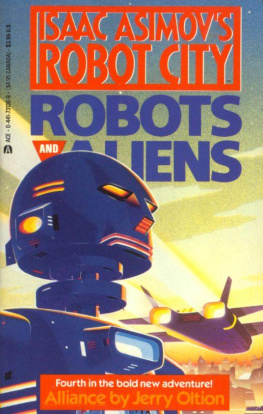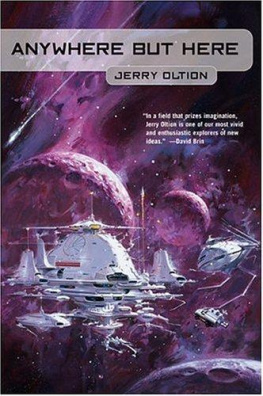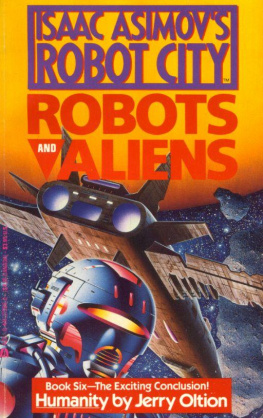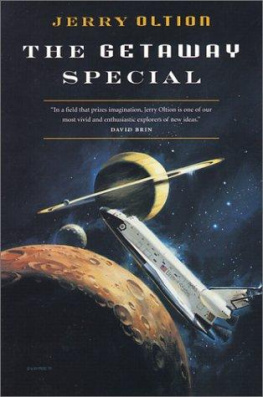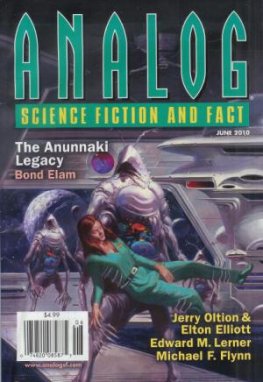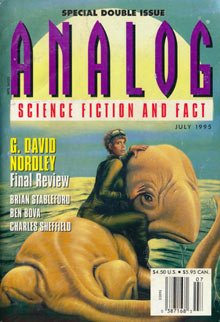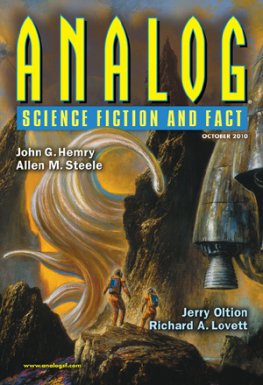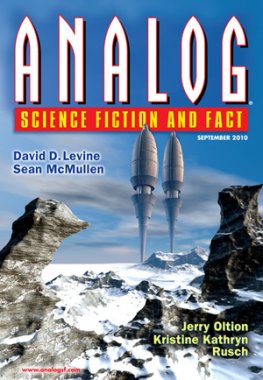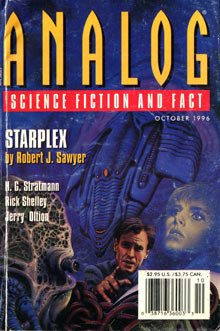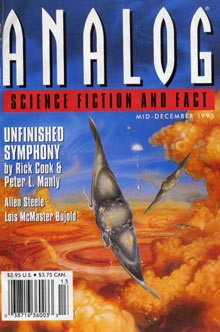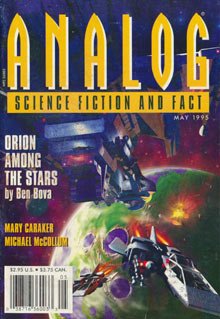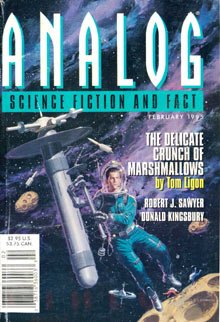Jerry Oltion - Alliance
Here you can read online Jerry Oltion - Alliance full text of the book (entire story) in english for free. Download pdf and epub, get meaning, cover and reviews about this ebook. year: 1990, publisher: Ace Books, genre: Science fiction. Description of the work, (preface) as well as reviews are available. Best literature library LitArk.com created for fans of good reading and offers a wide selection of genres:
Romance novel
Science fiction
Adventure
Detective
Science
History
Home and family
Prose
Art
Politics
Computer
Non-fiction
Religion
Business
Children
Humor
Choose a favorite category and find really read worthwhile books. Enjoy immersion in the world of imagination, feel the emotions of the characters or learn something new for yourself, make an fascinating discovery.

- Book:Alliance
- Author:
- Publisher:Ace Books
- Genre:
- Year:1990
- ISBN:0-441-73130-9
- Rating:4 / 5
- Favourites:Add to favourites
- Your mark:
- 80
- 1
- 2
- 3
- 4
- 5
Alliance: summary, description and annotation
We offer to read an annotation, description, summary or preface (depends on what the author of the book "Alliance" wrote himself). If you haven't found the necessary information about the book — write in the comments, we will try to find it.
Alliance — read online for free the complete book (whole text) full work
Below is the text of the book, divided by pages. System saving the place of the last page read, allows you to conveniently read the book "Alliance" online for free, without having to search again every time where you left off. Put a bookmark, and you can go to the page where you finished reading at any time.
Font size:
Interval:
Bookmark:
Jerry Oltion
Alliance
Robots And Fathers
Isaac Asimov
All of us began as fertilized ova, obviously. For the first nine months, or maybe a little less, we existed in a womb which, under normal conditions, represents about as close to total security as we are likely ever to have. Unfortunately, we have no way of knowing and appreciating this security at that time.
We are then brought suddenly into the outside world, with a certain amount of violence, and are exposed, for the first time, to changes in temperature, to the rough touch of moving air, to breathing, drinking and eliminating only with effort (however instinctive and automatic that effort might be). The womb is forever gone.
Nevertheless, each of us, if we have had a normal infancy, has parents; a mother, in particular, who labors to substitute for the womb as much as possible. We are all nearly helpless, but mothers and, to some extent, fathers, if enlightened, see that we are warm, comfortable, fed, washed, dried, and given a chance to sleep undisturbed. It is still not bad, and we are still in no condition to appreciate our good fortune.
Then comes the stage when we are aware of our surroundings. Still small, still largely helpless, we become able to understand the dangers that on us press; we become capable of feeling fear and panic; we become able to grasp, however dimly, the discomfort of loss or threatened loss, and the anguish of unfulfilled desire.
Even then, there is a means of relief and redress. There are the looming figures of father and mother (and, to a far lesser extent, older siblings, if any). We have all seen young children clinging to a fathers leg desperately, or peeping out from behind a mothers clutched skirt at the fearful sight of other human beings or almost any other kind of novel experience. We see them (and perhaps we can think of ourselves in the dim earliest memories we have) rushing to mother or father as the all-encompassing security.
I remember my daughter, Robyn, at the comparatively advanced age of fourteen, telling me how she had taken an airplane under threatening weather conditions. When I registered fear and terror at what might have been the consequences, she said, calmly, I wasnt afraid, because Mamma was with me and I knew she wouldnt allow anything to happen to me.
And when she was nineteen, she was temporarily marooned in Great Britains Heathrow airfield because of a work action. She called me long distance (collect) to tell me of her sad plight and said, with sublime confidence, Do something! I was about to try when they announced her plane was taking off and I did not have to reveal my inability to move mountains.
It is inevitable, however, that all children reach the stage where they realize that their parents are but human beings and are not creatures of ultimate ability and wisdom. Most children learn it a lot sooner than mine did because I went to considerable pains to play the role.
Whenever children learn of their parents fallibility and weakness, there is bound to be a terrible feeling of loss. The loss is so intense that there is an inevitable search for a substitute, but where can you find it?
Primitive man naturally argued by analogy. If human beings can puff their breath outward, then the wind (an enormous puff of breath) must be the exhalation of a vast supernatural being like a human being but immensely larger and more powerful, a windgod. By similar arguments, an incredible array of supernatural entities were built up-an entire imaginary Universe.
To begin with, it was assumed that these supernatural beings were as contentious, as irascible, as illogical, as passion-ridden as were the human beings on whom they were modeled. They had to be placated endlessly, flattered, praised and bribed into behaving kindly. It was, I suppose, a great advance when the idea arose that a supernatural being might be naturally kind, merciful and loving, and would want to help and cherish human beings.
And when that happened, human beings at last found the father they had lost as they grew up-not the actual, fallible, human father who might still be alive (and a fat lot of good he was), but the superhuman, all-encompassing, all-knowing, all-powerful father they had had as an infant.
Thus, in the Sermon on the Mount, Jesus repeatedly refers to your Father which is in heaven. Of course, it might be argued that the term Father is used metaphorically, rather than literally, but metaphors are not developed without reason.
Fathers are also found at lower levels than that of a supreme God, since the search for lost security can move in many directions. The representatives of God on Earth may get the title, too. Pope is a form of the word Papa (it is papa in Italian), which is a common word for father in many Indo-European languages. And lest the point be lost, he is also called the Holy Father. Roman Catholic priests and High Church Episcopalian priests are also addressed as Father.
The early theological scholars of the Catholic Church are called the Fathers of the Church. It is even possible to look at certain purely secular individuals who are regarded with particular veneration in that fashion. We speak of the Pilgrim Fathers, for instance.
We lend the name to Earthly abstractions, too. If one is particularly sentimental about ones place of birth, its land, its customs, its culture, how can one better describe it than as the Fatherland. The Germans have done so with such assiduity and so loudly (Vaterland) that the word has come to mean Germany, in particular, and that has made it hard for other nations to use it. We can still speak of the Motherland or the Mother Country, however. The feminine symbolism bespeaks not so much the sword and spear as the flowing breasts-so perhaps Motherland is the healthier metaphor.
The words for father and mother show up as metaphors in hidden form (for us) because they lurk behind Greek and Latin. The rulers of Rome were the surrogate fathers of the State (and pretty lousy and selfish fathers they were). They were patricians from the Latin word pater, meaning father. From pater, we also get the Latin word for fatherland, so that now we know what a patriot is.
A Greek city often sent out colonists who founded other cities which were, essentially, independent, but which often harbored a sentimental attachment for the mother-city.
The Greek word for city is polis and for mother is meter. The mother-city is therefore the metropolis. Nowadays, the name is used for any large city dominating a region and the thought is lost-but its there.
But has any of this anything to do with robots which are, after all, the subject of my introductions to the series of novels which are brought together under the generic title of Robot City?
Surely you can guess. To use mathematical terminology: parent is to child as human being is to robot.
Suppose we rephrase the Three Laws of Robotics and have it the Three Laws of Children, instead.
The First Law would read: A child must not do harm to its parents or, by inaction, allow its parents to come to harm.
One of the Ten Commandments is that we must honor our father and our mother. When I was brought up (by immigrant parents steeped in Talmudic lore), doing my parents harm was unthinkable and, believe me, the thought never occurred to me. In fact, even being impudent was a terrible thing that would have blackened the Universe for me. And, you know, matricide and patricide have always been viewed as among the most horrible, if not the most horrible, of all crimes.
Even if we consider God as the Divine Father, the First Law holds. We cant conceivably do physical harm to God, but, presumably, if we sin, we cause Him the Divine equivalent of pain and sorrow, so we must be careful not to do that.
Font size:
Interval:
Bookmark:
Similar books «Alliance»
Look at similar books to Alliance. We have selected literature similar in name and meaning in the hope of providing readers with more options to find new, interesting, not yet read works.
Discussion, reviews of the book Alliance and just readers' own opinions. Leave your comments, write what you think about the work, its meaning or the main characters. Specify what exactly you liked and what you didn't like, and why you think so.

